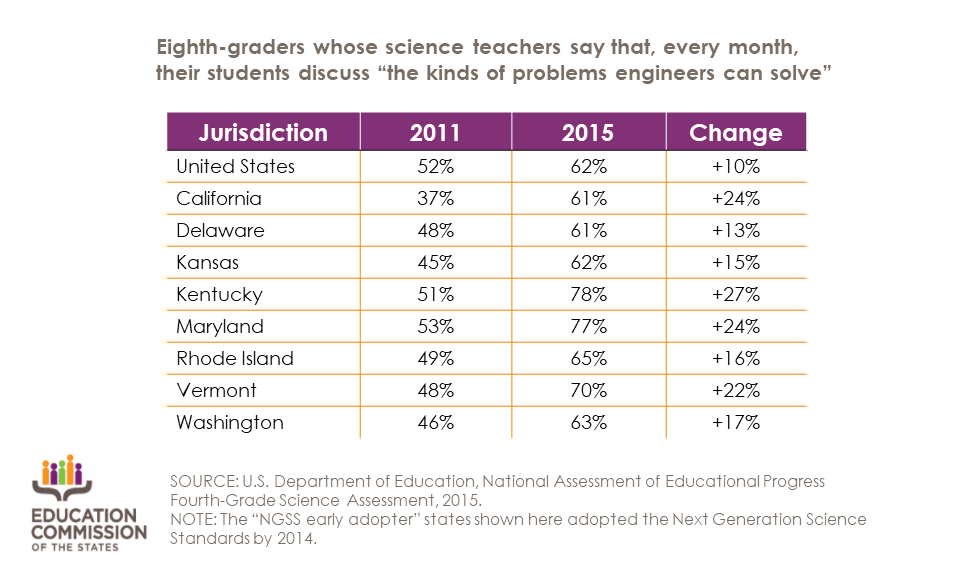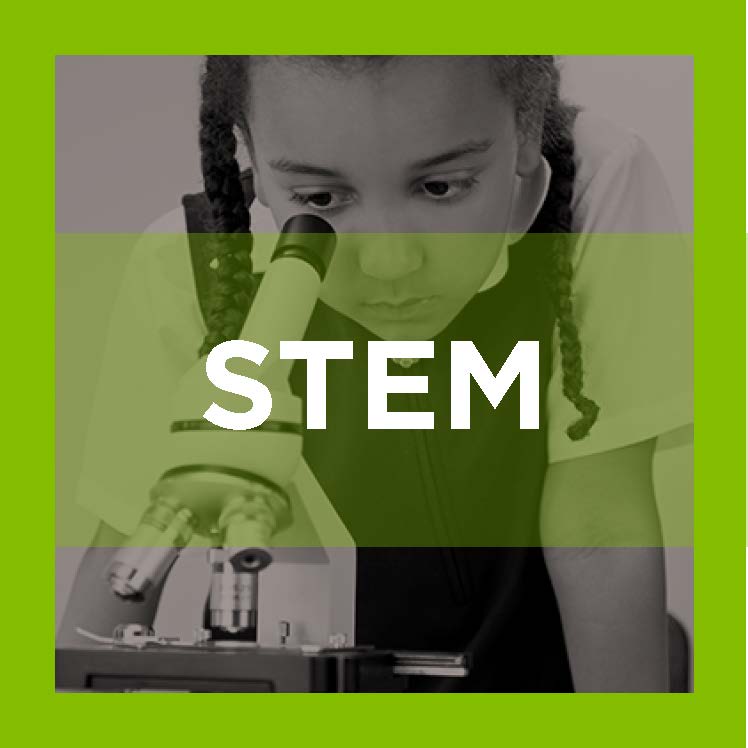It’s National Engineers Week, and advocates for teaching engineering in K-12 have reason to celebrate. Engineering is becoming part of science class for millions of American students. Yet as any battle-hardened reformer knows, it is too early to declare victory.
The Next Generation Science Standards (NGSS), which emphasize the engineering design process, are both cause and consequence of this change. Nineteen states have adopted the standards, and more have emulated them. If the standards succeed, American students will commonly learn to tackle problems as engineers do.
Early evidence suggests that the push for engineering is having an impact in eighth-grade science.

Nationwide, middle-schoolers were more likely to discuss engineering problems in 2015 than they had been four years earlier. States that adopted NGSS before 2014 saw the sharpest increases.
It would be simplistic to give NGSS sole credit for the surge among early adopters, who had barely begun to implement the standards by 2015. The same demand for engineering that led these states to adopt NGSS may also have fueled the rise of engineering in eighth-grade classrooms.
In addition, public and private funds have helped K-12 engineering such programs as Engineering is Elementary and Project Lead the Way grow briskly in the past five or so years, bringing engineering curriculum to millions of K-12 students and professional development to many thousands of teachers.
Yet glass-half-empty types may object that most states have yet to wrap science into their accountability plans, and that many teachers still have fitful access to training and materials in science and engineering.
For now, champions of engineering must chart a course between optimism and realism. There is much we don’t know about the progress of engineering in K-12. New state science tests are only now coming online, and they may not shed light on student performance in engineering for some time. The results of this year’s national Technology and Engineering Literacy test, the first since NGSS burst on the scene, won’t be available for at least another year or two. And we will have to wait until 2020 for new state-by-state survey data on whether science teachers get the support they need.
Perhaps the best stance for engineering advocates is “trust, but verify.” Take heart that so many have embraced engineering, but take heed so that the work doesn’t founder on spotty implementation.










